Ikväll drar FACEIT League 2015 igång, där totalt 20 lag från över hela världen spelar om att bli ett av de åtta lagen som får åka på LAN-finalerna och slåss om en del av den 275 000 dollar stora prispotten. Pengarna är många, och onlinefasen är en lång sådan, något som fått FACEIT att lägga in en intressant punkt i sitt regelverk.
The specific rule first came out during the cheating scandal prior to DreamHack Winter as there were leaks about players potentially cheating on LAN. While we were very confident about our anticheat and the direction we were taking with it (we update the amount of algorithms and prevention systems we have in place on a daily basis), we decided to brainstorm on how we could use some elements of traditional sports as an inspiration to improve our processes.
If you want to participate to the Olympics you know that you will be subject to random blood or other physical tests. If you want to have a car in Formula 1 you know that judges may present themselves and check your car after or before an event. Why should this not be the rule in esports?
A further analysis made us realize that this could have been an additional step forward towards giving the professionals that work so hard to be at top level the standing of athletes that they deserve. If you play Dota or CS:GO at a professional level you are indeed an athlete who will be competing in a sport for a great deal of money. One of our co-founders himself has gone through this in the past by making sure that esports would become his primary job and source of income. Not everyone, particularly in the mainstream, realizes how much hard work this actually means. A similar rule (as many of the rules and processes we started introducing and are going to be introduced in the upcoming editions for both players and ourselves) shows the public that these people are athletes and are ready to accept certain rules very similar to those the public is used to as part of traditional sports.
Given these approaches, it’s obvious that this is just one of many ways to protect the League from cheating, and it definitely is not and cannot be a standalone solution. The new rule is an additional tool to put pressure on the issue with a different approach. Additionally, as mentioned, this is part of a wider process, which includes rules and procedures for both players and most importantly organizers, that aims to assure athletes participating in FACEIT pro level competitions they will be treated as professionals.
Regeln har uppmärksammats på Reddit, där många anser den vara komisk. Dock tar arrangörerna den nya implementeringen högst seriöst, och FACEIT:s evenemangsansvarige, Roald van Buuren, har förklarat Fragbite att den grundar sig i fuskskandalerna, en period även känd som The VACcening, i slutet av fjolåret i kombination med att man vill göra esporten mer lik den traditionella sporten.8. Cheating
All players may be subject to physical visits from FACEIT admins to inspect their computers for cheats and/or observe them playing an official match. Inspection may happen at random and may not necessarily suggest a suspicion of cheating. To be clear, what we are saying is we may turn up at your house. Yes, we are serious.
What was the trigger for adding this rule?
The rule is an addition that came out as part of a review of our vision of moving esports towards a more professional environment and it is just one of the many changes we are looking into to move the industry in the direction of traditional sports.The specific rule first came out during the cheating scandal prior to DreamHack Winter as there were leaks about players potentially cheating on LAN. While we were very confident about our anticheat and the direction we were taking with it (we update the amount of algorithms and prevention systems we have in place on a daily basis), we decided to brainstorm on how we could use some elements of traditional sports as an inspiration to improve our processes.
If you want to participate to the Olympics you know that you will be subject to random blood or other physical tests. If you want to have a car in Formula 1 you know that judges may present themselves and check your car after or before an event. Why should this not be the rule in esports?
A further analysis made us realize that this could have been an additional step forward towards giving the professionals that work so hard to be at top level the standing of athletes that they deserve. If you play Dota or CS:GO at a professional level you are indeed an athlete who will be competing in a sport for a great deal of money. One of our co-founders himself has gone through this in the past by making sure that esports would become his primary job and source of income. Not everyone, particularly in the mainstream, realizes how much hard work this actually means. A similar rule (as many of the rules and processes we started introducing and are going to be introduced in the upcoming editions for both players and ourselves) shows the public that these people are athletes and are ready to accept certain rules very similar to those the public is used to as part of traditional sports.
The people who will (potentially) come to the player's house, what kind of experience do they have regarding anti-cheat?
The current teams are divided between an admin representing the League organization committee that will be in charge of assuring procedures are followed and one of the members of our anticheat team (i.e. the ones developing the anticheat on a daily basis). Additionally we are working with our CTO on improving systems to quickly scan for traces left by cheats post deletion. We can count on the help of professionals that have been working on similar forensics software for a number of government agencies over the past 20 years.Do you feel this is the healthiest way to protect your league from cheating, and do you recommend other leagues to use the same system?
We see cheating as something that needs to be fought with many different means and approaches. Until today we have mainly been using technology, updating our anticheat and cheating detection and prevention algorithms on a daily basis. That said, cheating is a social phenomenon that also needs to be fought under a social point of view. If we really want to do something about this we need to act together, organizers, players and communities, to assure that cheating is socially repressed.Given these approaches, it’s obvious that this is just one of many ways to protect the League from cheating, and it definitely is not and cannot be a standalone solution. The new rule is an additional tool to put pressure on the issue with a different approach. Additionally, as mentioned, this is part of a wider process, which includes rules and procedures for both players and most importantly organizers, that aims to assure athletes participating in FACEIT pro level competitions they will be treated as professionals.






